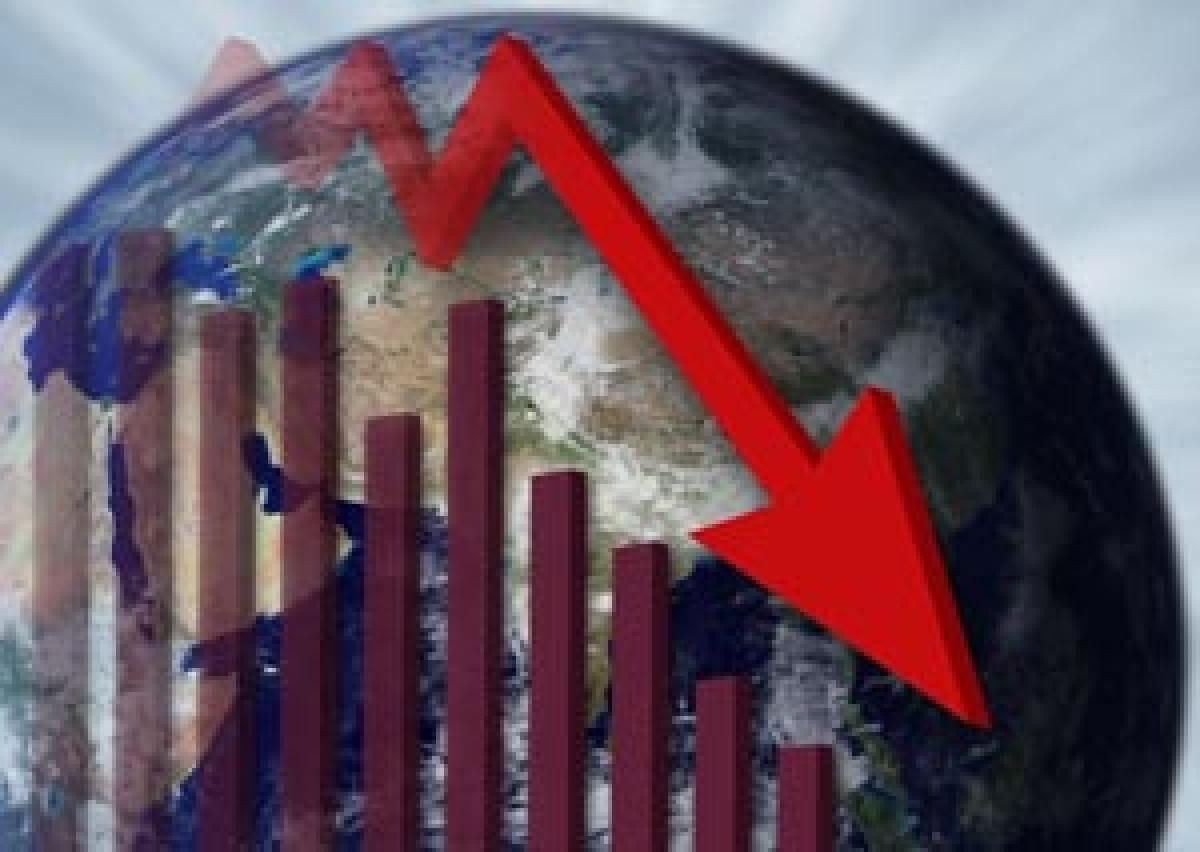Live
- ‘Get Set, Grow Summit 2024’ Focuses on Digital Detox for Families
- Stokes motivates his team to put in extra effort, says England pacer Potts
- From overcoming setbacks to leading India in U19 Women’s Asia Cup, Niki Prasad's amazing journey
- Driving Enterprise Security: Inside Venkata Reddy Thummala’s Leadership Journey
- Constitution debate: PM Modi hails 'Nari Shakti'; makes strong pitch for 'United Bharat’
- Abhijeet Bhardwaj: Revolutionizing Enterprise Analytics with Innovation and Expertise
- Bihar: Inquiry initiated against principal who went to buy veggies during school hours
- Press Sri Lankan Prez for release of Indian fishermen: TN Cong MP to EAM Jaishankar
- TN: DMK postpones executive meet due to heavy rains & Parliament session
- Porous silicon oxide electrodes can fix durability issues in batteries: Researchers
Just In

Slow growth leaving swathes of the population with no real income gains for another 10 years will foster more disaffection that just bakes in political volatility and economic stagnation.
London : Slow growth leaving swathes of the population with no real income gains for another 10 years will foster more disaffection that just bakes in political volatility and economic stagnation. That looks like an impossibly gloomy prognosis and self-feeding spiral. But it's one already reflected in global debt markets that have sunk long-term interest rates close to zero for many decades to come.
A simultaneous rise of stock markets to or near record highs is more puzzling, especially as global investment funds have cut equity holdings in July to below benchmarks for the first time in four years, a Bank of America Merrill Lynch survey showed. But stocks are holding up by default in a world where the alternatives are negative-yielding cash and bonds, and where successive policy stimulus packages just stave off recession.
There's little doubt that economic policymakers, having fretted about inequality for years, now grasp the upshot of such uneven growth. And they see electoral dynamite. Failure to stoke faster and more pervasive recoveries since a systemic financial collapse eight years ago has already lit a fuse of discontentment. And the consequences of more of the same, let alone another downturn, mean all levers will be tried.
In his first speech since Britain voted to leave the European Union, Bank of England Chief Economist Andrew Haldane said last week that the central bank should ease aggressively regardless of doubts about the effectiveness of more easy money. "I would rather run the risk of taking a sledgehammer to crack a nut than taking a miniature rock hammer to tunnel my way out of prison," he said.
Haldane's speech, entitled 'Whose Recovery?', dissected the UK recovery since 2009 and showed that despite rising national output and job creation, over half of UK households had seen no rise in real disposable incomes since 2005 a 'lost decade'. It was the longest period of flat or falling real wages since at least the middle of the 19th century, he added. Significant skews in the recovery favoured London, asset-rich households, and older age groups.
All the 2.7 trillion pound rise in wealth since 2007 was harvested by over 45s. Haldane's forensic takeout doesn't entirely explain why Britons voted to leave the EU, but reveals why many felt the status quo was not working for them. Add anxiety about rising immigration seen by some as depressing unskilled wages as well as a function of sub-par growth elsewhere in Europe -- and the surprise becomes less shocking.
But if voter rebellions are to be a feature of spluttering developed economies and rising instability and insecurity in slowing emerging economies, it will be hard to square with such lofty equity prices and such low implied volatility. Manageable or not, Brexit will hardly be the final word. "No peak uncertainty -- just rolling hills of worry lie ahead," said HSBC's asset allocation chief Fredrik Nerbrand.
The United States, France, Germany and the Netherlands all go the polls in the next year. Constitutional reform proposals could also force an election in Italy, which is already trying to resolve a growing banking crunch. Political pressures or even instability abound across the developing world, from Turkey to Brazil or South Africa and even Russia.
Economic and policy uncertainty in China and Japan are well documented and no more soluble for all that. Even the seemingly random events of the past week the Bastille Day attacks in Nice, police shootings in the United States or Turkey's failed coup all speak to a growing disquiet about left-field political developments.
"Terrorist attacks, scandals and rising opposition to immigration boost the grass-roots backlash to globalisation," said Citi's political analyst Tina Fordham, adding the bank had raised its probability that Republican candidate Donald Trump would win the White House this year to 35 per cent. "The sense that leaders lack the political capital, will and tools to maintain stability and order in the face of these headwinds will almost certainly weigh negatively upon sentiment as well as the growth outlook."
The International Monetary Fund has shaved another 10th of a percentage point off its 2017 world growth forecast to 3.4 percent, citing last month's Brexit surprise and warning that protracted and disruptive UK/EU divorce negotiations could drag global growth below 3 percent next year.
Disaffection sown by sub-par growth then risks becoming a feedback loop that further saps economic activity just as the world economy and its labour markets are struggling with intense pressure from ageing demographics and new technology.
A study from McKinsey Global Institute, titled 'Poorer than their Parents?", showed real incomes for more than two-thirds of households across 25 advanced economies some 540 million people were either flat or fell between 2005-2014.
By Mike Dolan

© 2024 Hyderabad Media House Limited/The Hans India. All rights reserved. Powered by hocalwire.com







